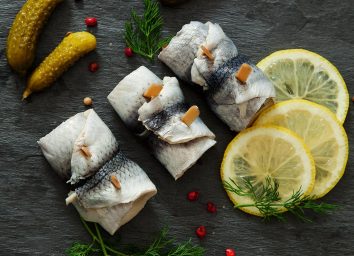15 Foods That Are Banned in the U.S.
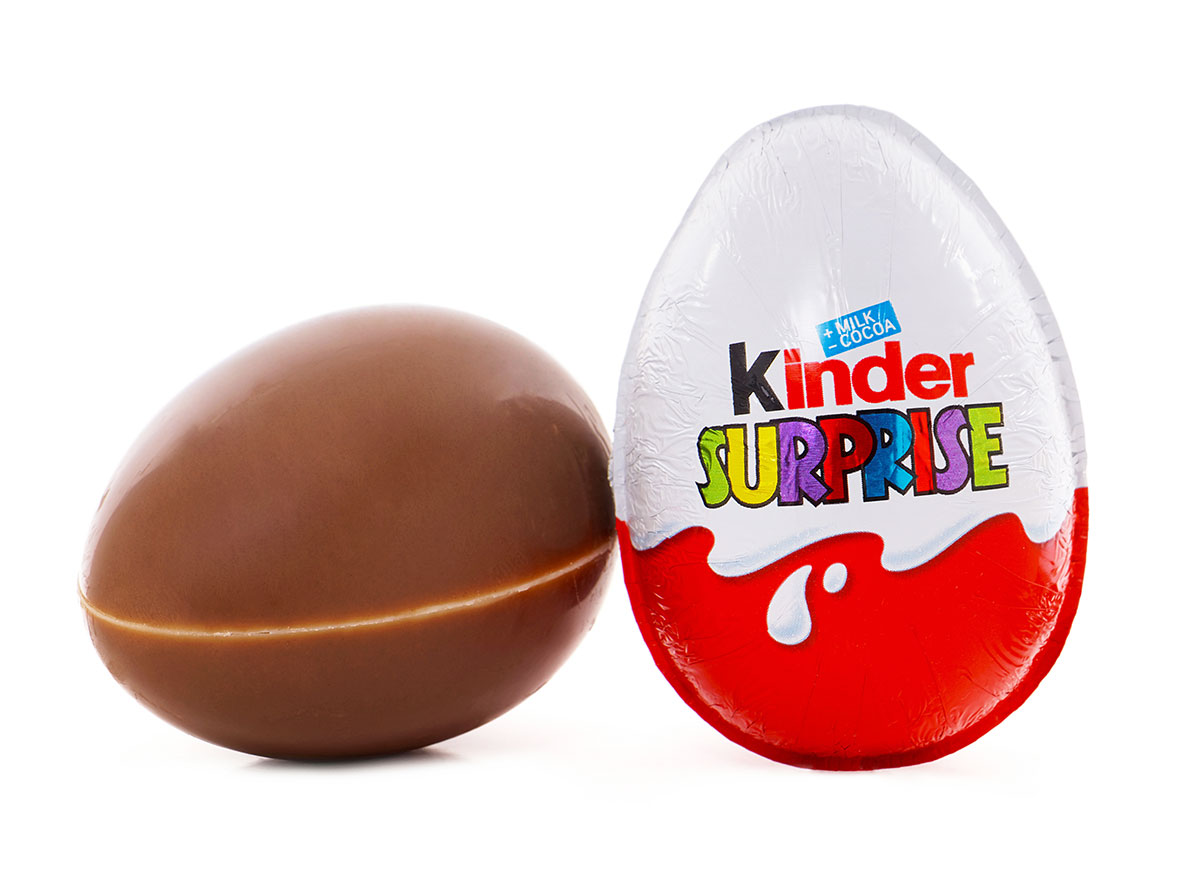
The FDA and USDA both enforce laws and regulations on foods so that consumers remain safe. Several foods that are legal in other countries are banned in the U.S. for this reason alone—they are believed to pose a threat against one’s health. However, there are other reasons why foods are banned specifically in the U.S., most notably to protect endangered species or to stop acts of animal cruelty.
Find out which 15 foods are banned in the U.S., or at the very least, banned in some states.
Kinder Surprise Eggs
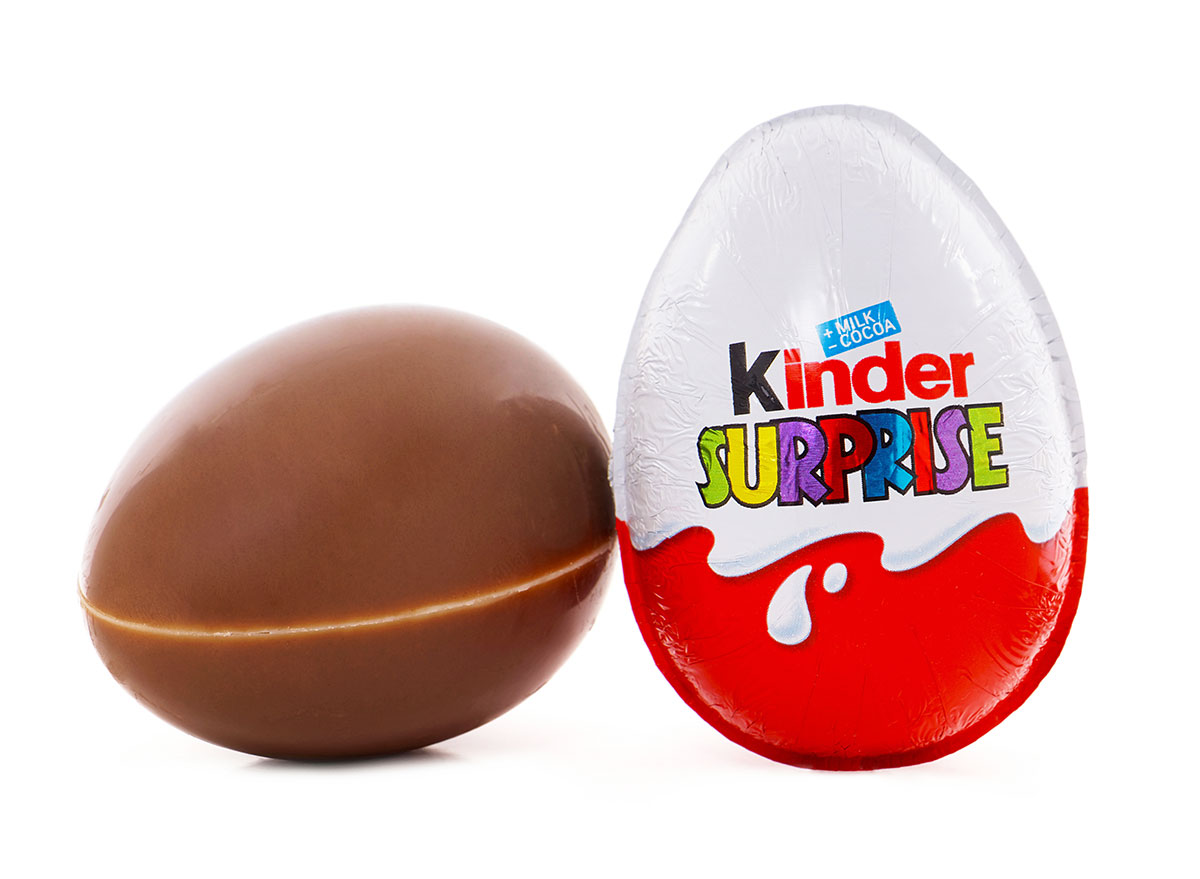
The FDA banned the sale of all food products containing embedded, non-nutritive objects some 80 years ago, and the European Kinder Surprise chocolate eggs, which contain a non-edible toy inside, falls under that category. The hollow candy egg is a hit overseas, and there have been multiple petitions and campaigns advocating to legalize it in the U.S. for several years.
For now, the product remains banned for sale because it’s deemed a choking hazard. However, that doesn’t mean there haven’t been attempts to import it. According to an article from the Wall Street Journal, as of 2018 the U.S. Customs and Border Protection had seized over 160,000 Kinder Surprise eggs from travelers’ baggage and from international mail shipments since 2011. As of 2018 though, a different version of the chocolate treat called Kinder Joy is available in the U.S., as the packaging keeps the toy separate from the candy, with each side of the egg covered in plastic wrap.
Horse Meat
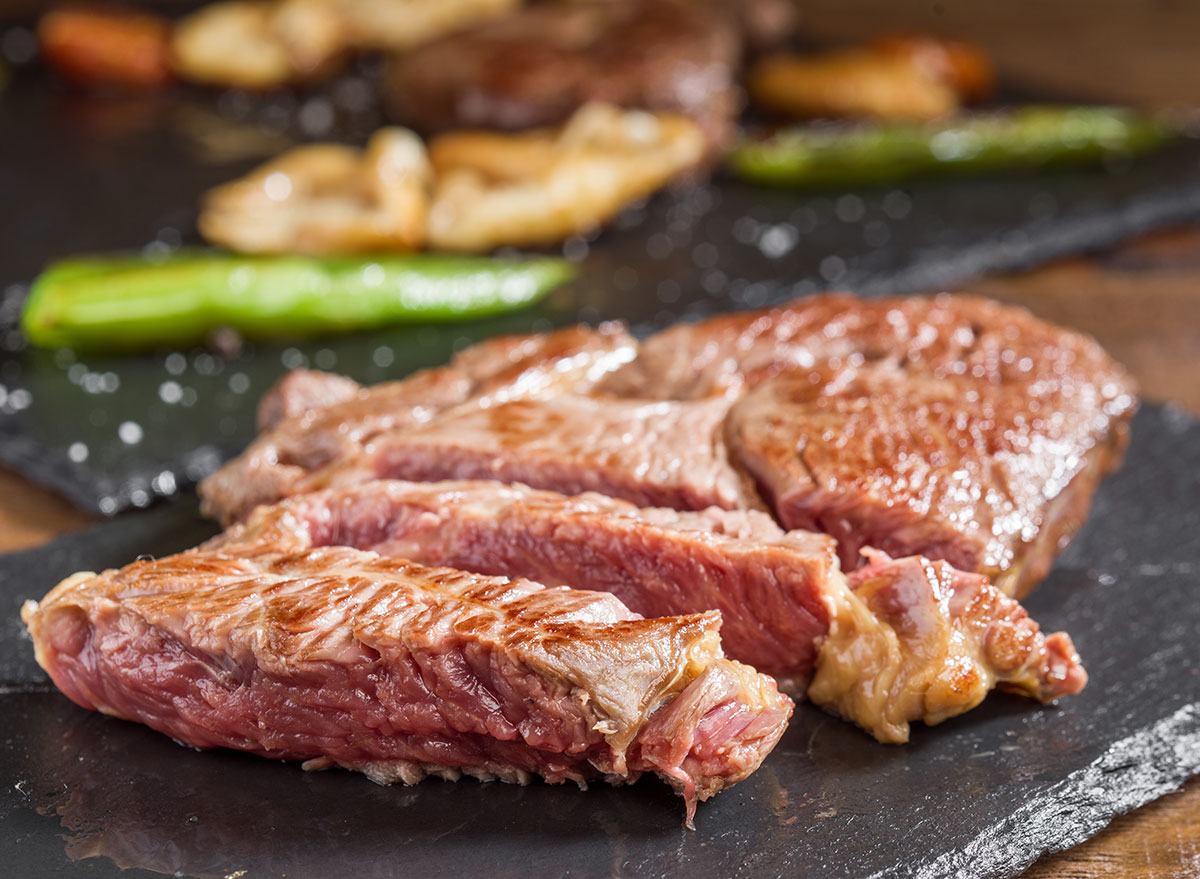
To be clear, it’s not illegal to eat horse meat in the U.S. It is, however, illegal to slaughter horses, and by default prohibits the consumption of it, or—at least—makes it extremely challenging. President Trump renewed the ban on slaughtering horses for meat in March 2018. As is the case with other animals, it’s not illegal (or taboo) to eat horse in other countries such as China, which has one the largest markets for horse meat.
Shark Fins
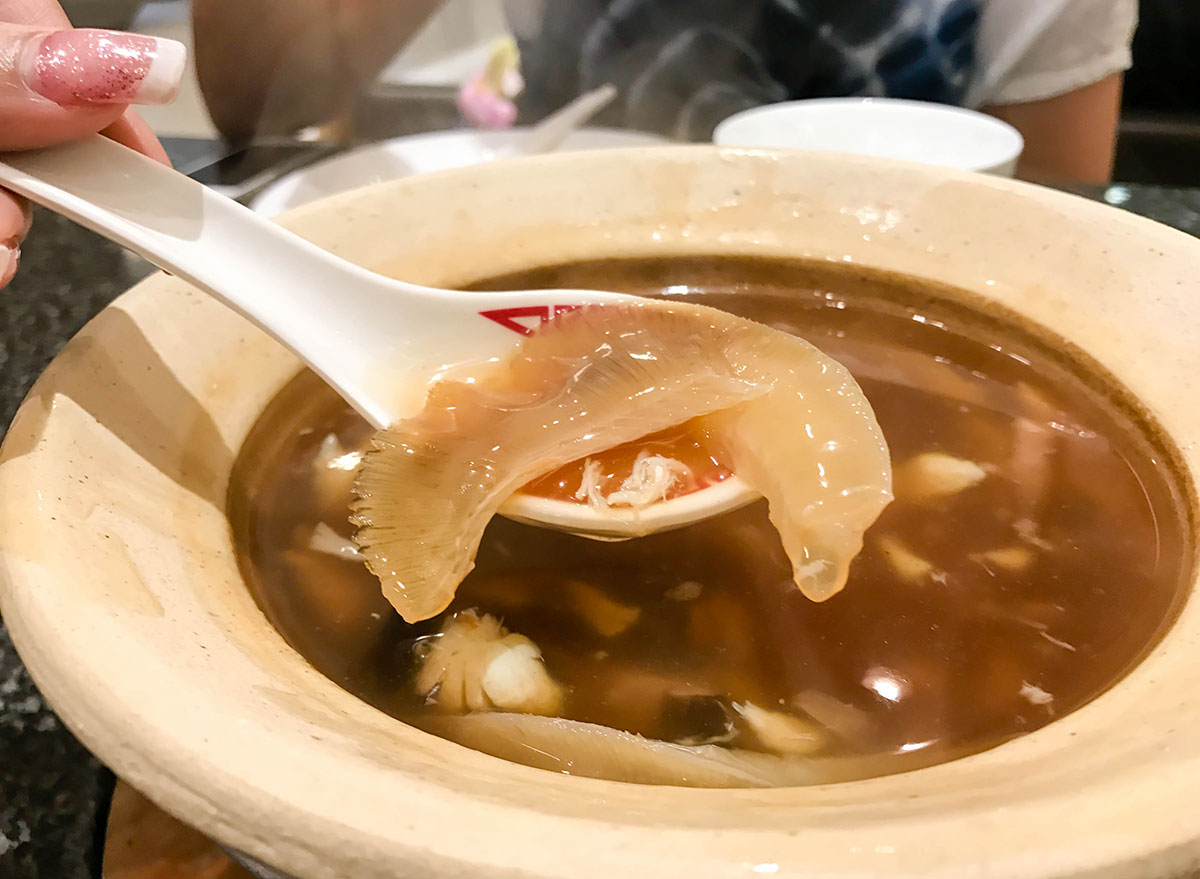
Believe it or not, shark fins are not entirely banned in the United States. Currently, only 12 states uphold an official ban on the sale of shark fins. However, the act of shark finning itself has been illegal in U.S. waters since 2000. Shark finning is banned, as it is considered an act of animal cruelty because it involves the slicing of fins off live sharks just to toss them overboard and endure a horrific demise. Still, 10 of the 12 states that banned the sale of shark fin still allow restaurants to serve the meat. Shark fin soup is actually considered to be a luxury dish in several Asian countries, especially China.
Japanese Puffer Fish
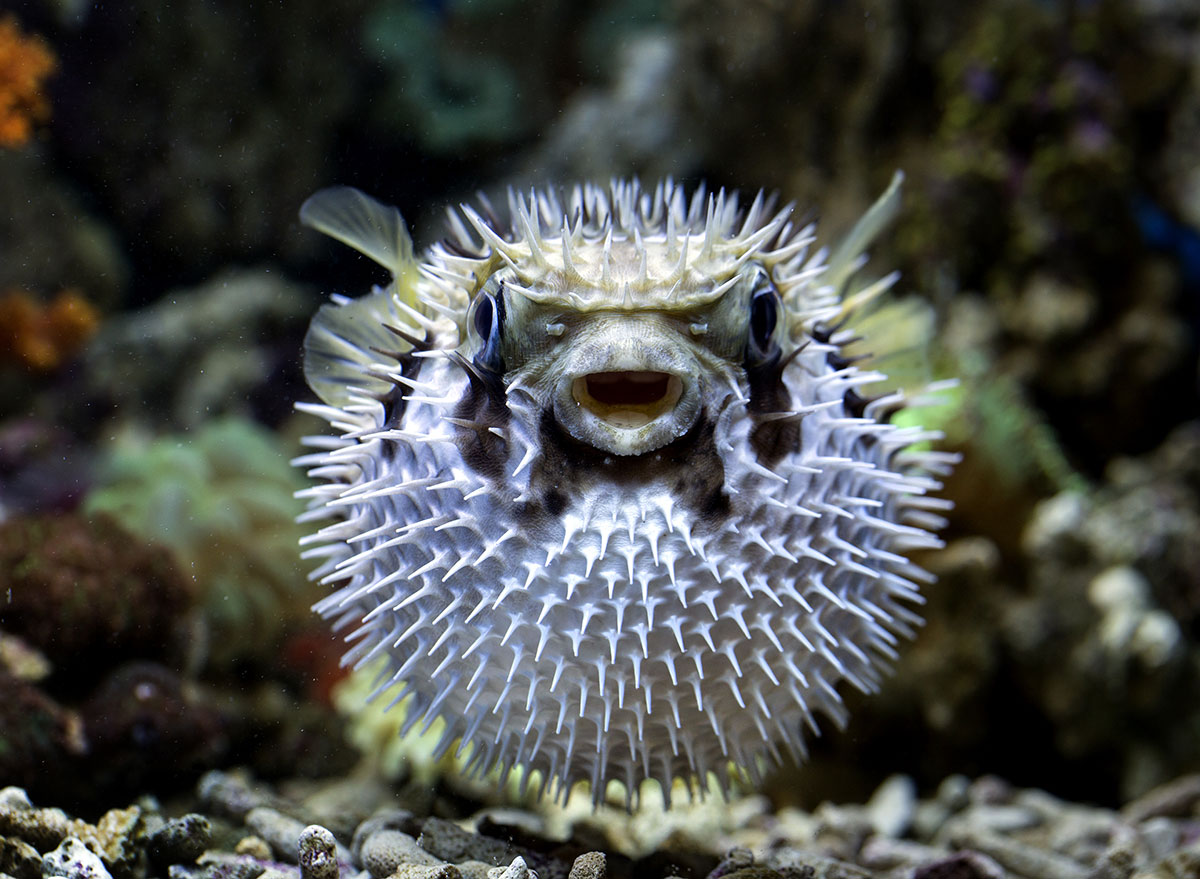
This whimsical looking fish actually houses an extremely poisonous toxin called tetrodotoxin in its skin and even in certain organs. This toxin is known to cause paralysis and even death. With this in mind, you may wonder, why would anyone want to consume this dish? Apparently, it’s regarded as a delicacy in the sushi world where it’s more widely known as fugu. Consumption of the fish is almost entirely banned in the United States, with the exception of a few sellers who are permitted to have a license.
Haggis
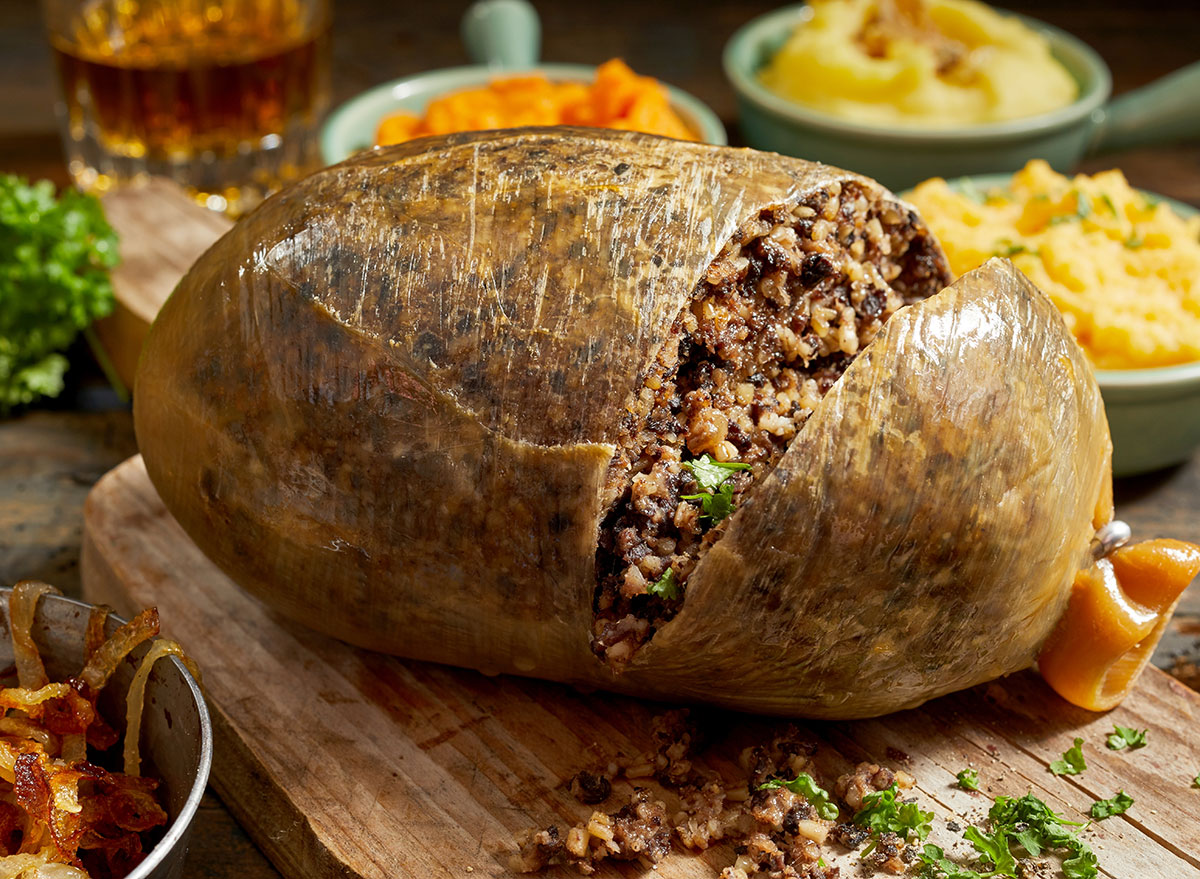
Haggis is a savory pudding that consists of a mixture of sheep’s heart, lung, and liver, among other ingredients such as oatmeal, minced onion, suet, and stock. The pudding is typically presented and served to guests within the stomach of the sheep. Traditionally, it’s consumed on Burns Night in Scotland, a countrywide event that honors Scottish poet, Robert Burns. However, those of Scottish heritage living in the U.S. cannot dine on haggis due to the ban that USDA placed on the sale of sheep’s lung 47 years ago. The ban was set in place in light of the emergence of the degenerative disease, scrapie, which affects the central nervous system in sheep.
Ackee Fruit
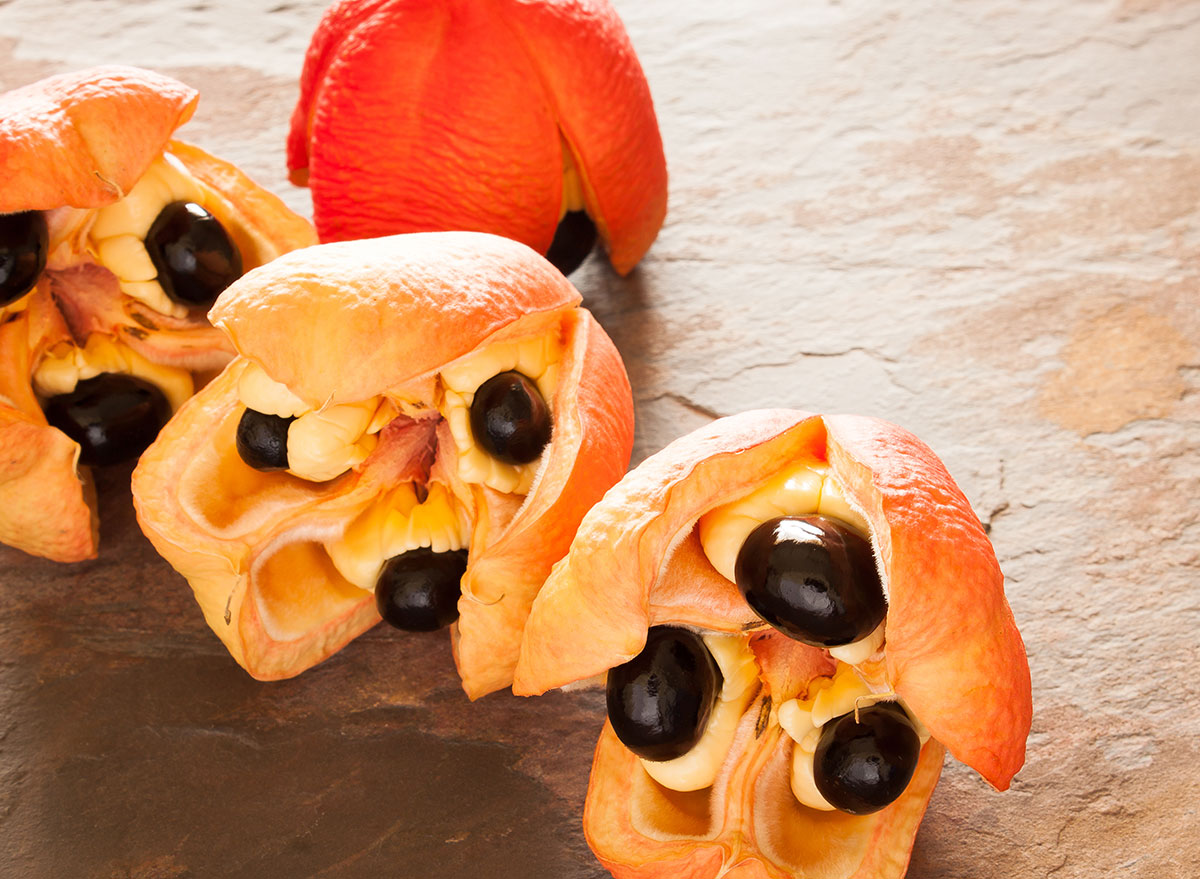
Ackee is the national fruit of Jamaica. However, when it’s unripe, the fruit contains high levels of the toxin hypoglycin A, which inhibits the body’s ability to release blood glucose (blood sugar). This can cause people to fall into a state of hypoglycemia, a condition where glucose levels are too low, which can induce vomiting, ultimately cause dehydration, and even result in death. Importation of the raw fruit was banned by the FDA in 1973, but you can still purchase canned or froze ackee fruit in the U.S. that have been cleared to have a low enough concentration of the toxin.
Beluga Caviar
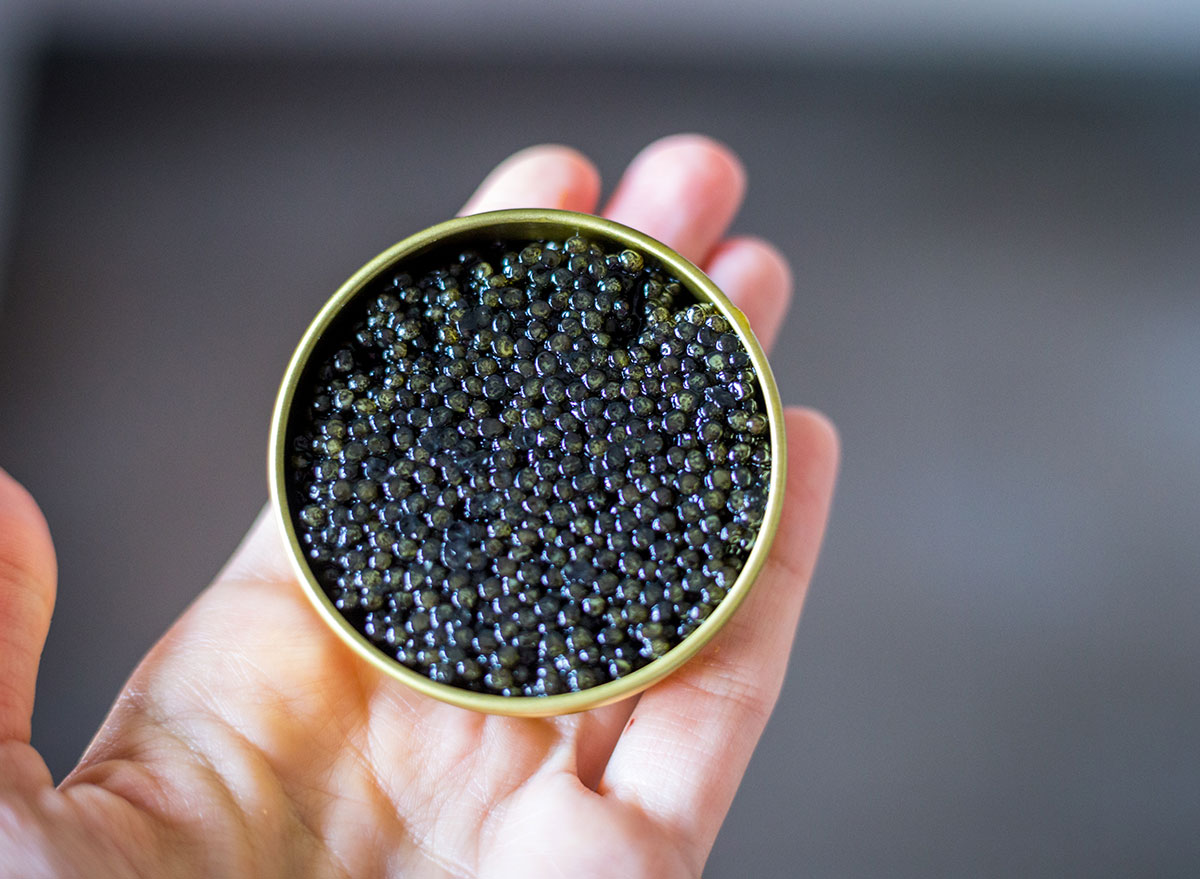
As of 2005, the U.S. Fish and Wildlife Services banned the importation of beluga caviar, as well as other beluga products, which according to a New York Times article, formerly had a price tag of $200 an ounce. The caviar comes from the wild Beluga sturgeon fish and is the primary reason why the fish has since become endangered. The ban was set in place in hopes of thwarting the species’ extinction.
Sassafras Oil
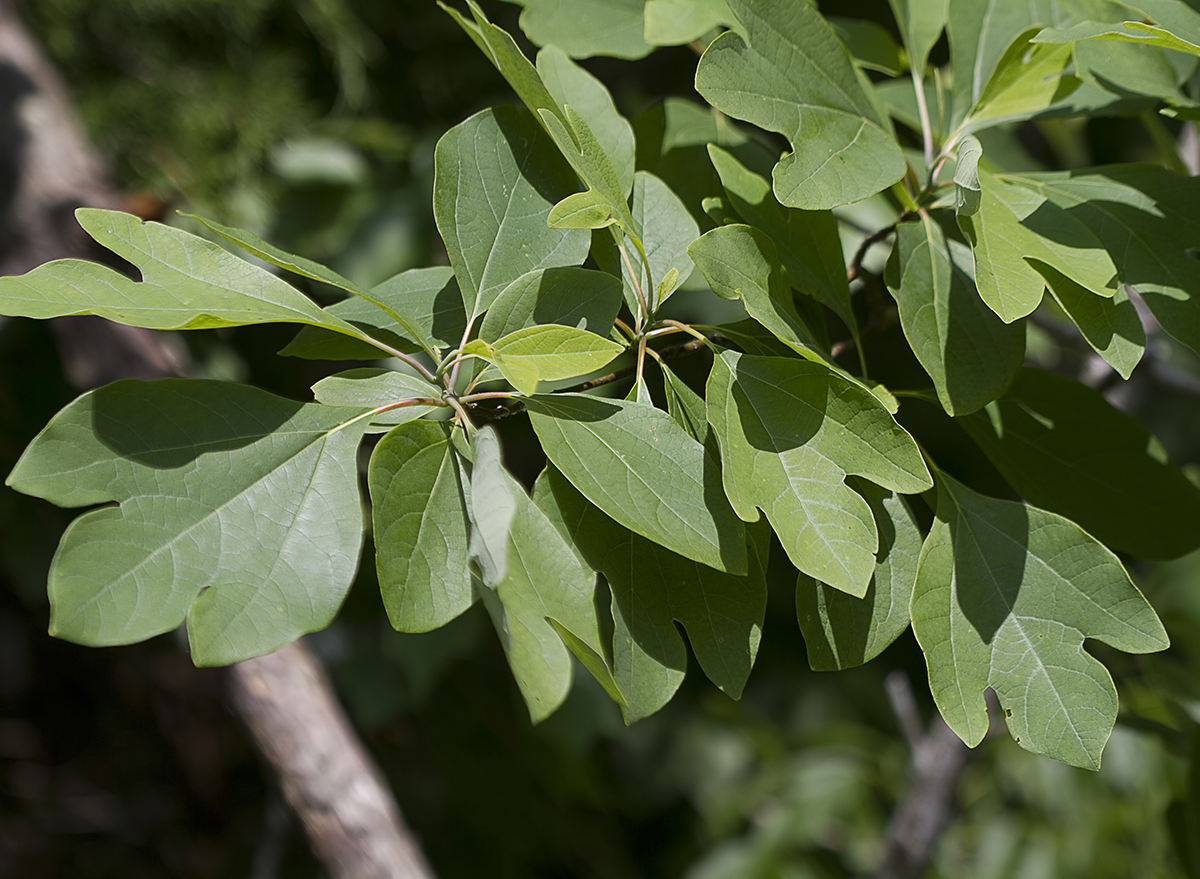
While the root bark of the sassafras plant has historically been used by Native Americans to treat illness including fever and rheumatism, the oil from sassafras lends a different result. There is a compound in sassafras oil called safrole, which is a known carcinogen. The FDA set a ban on sassafrass oil back in the 1960s. However, extracts from the roots of the plant are still legal as long as they do not contain safrole.
Casu Marzu
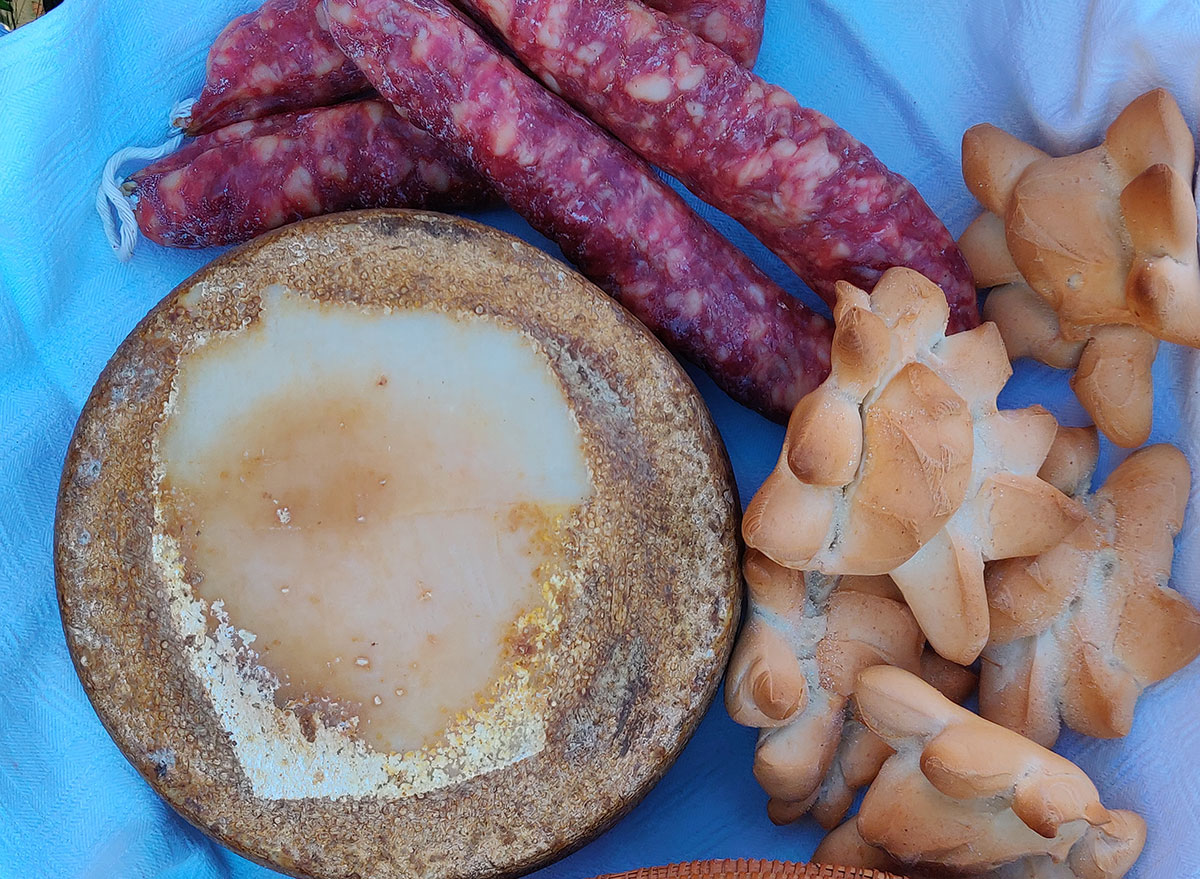
Casu marzu is often referred to as the rotten cheese because it’s infested with live maggots. The Pecorino cheese, which is made from unpasteurized sheep’s milk, contains the larvae of a particular fly. These maggots evidently facilitate the fermentation of the cheese. Once the larvae hatch, they begin to eat through the cheese, which effectively makes it softer. The cheese is then served with the maggots still lodged in it. Casu marzu has been a tradition in Sardinia, Itay, for many years. However, the EU and the United States have banned the cheese for health reasons.
Absinthe
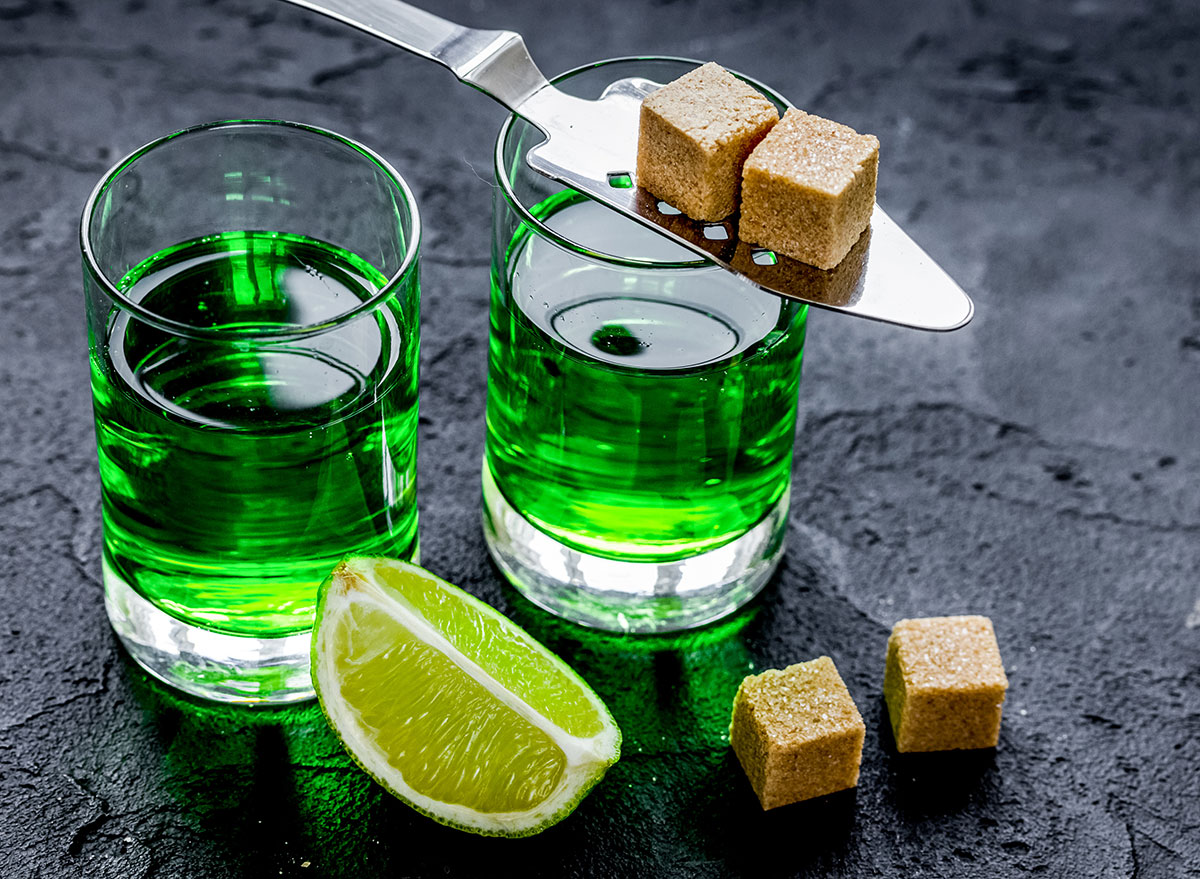
If you’ve seen the show New Girl, you probably already know the kind of forbidden powers Absinthe holds. As long as the alcoholic beverage contains less than 100 parts per million of thujone—the toxic chemical found in the wormwood herb that’s used to make the alcohol—it’s legal in the U.S. Anymore than that makes the drink illegal because of its supposed reputation as an addictive hallucinogen.
Ortolan
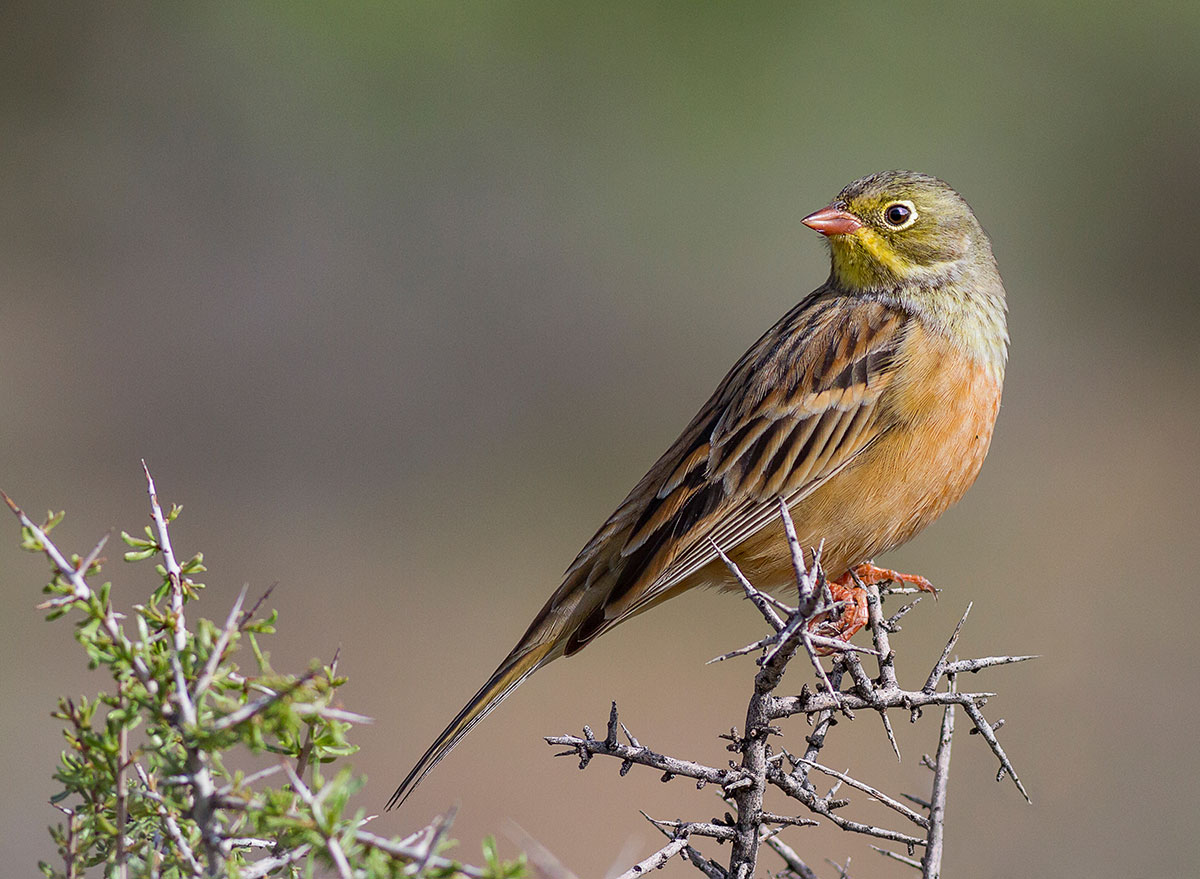
This tiny rare songbird was a former French delicacy, having been exclusively served to royalty and wealthy gourmands. Selling of Ortolan became illegal in France in 1999, 20 years after the EU deemed it a protected species. The U.S. also banned the selling and importation of bird, which measures out to be the size of a thumb, weighing less than an ounce.
Queen Conch
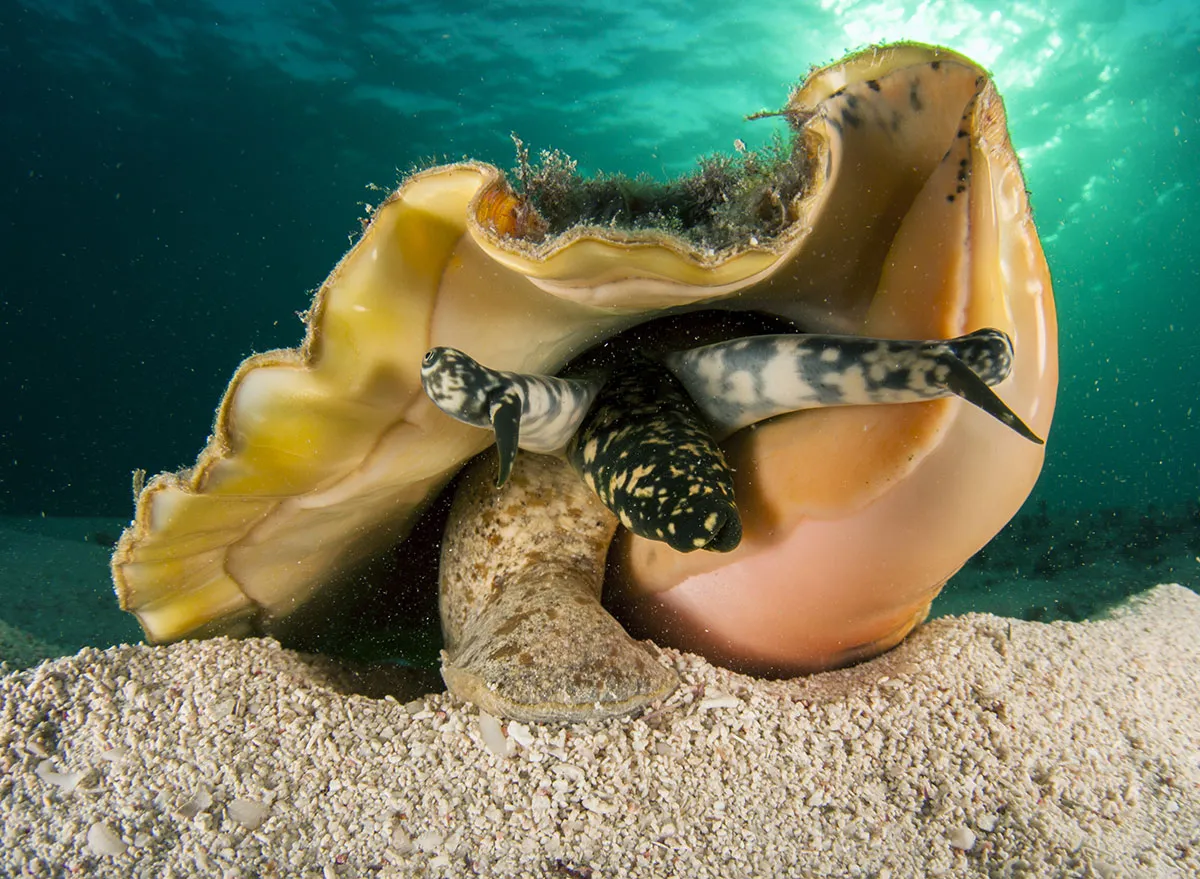
The Queen Conch is described as a large marine mollusk that typically ranges from six to nine inches in length. According to NOAA Fisheries, “Commercial and recreational harvest is generally banned in U.S. federal waters.” The species is often eaten in Turks & Caicos, even though it’s an endangered species.
Foie Gras
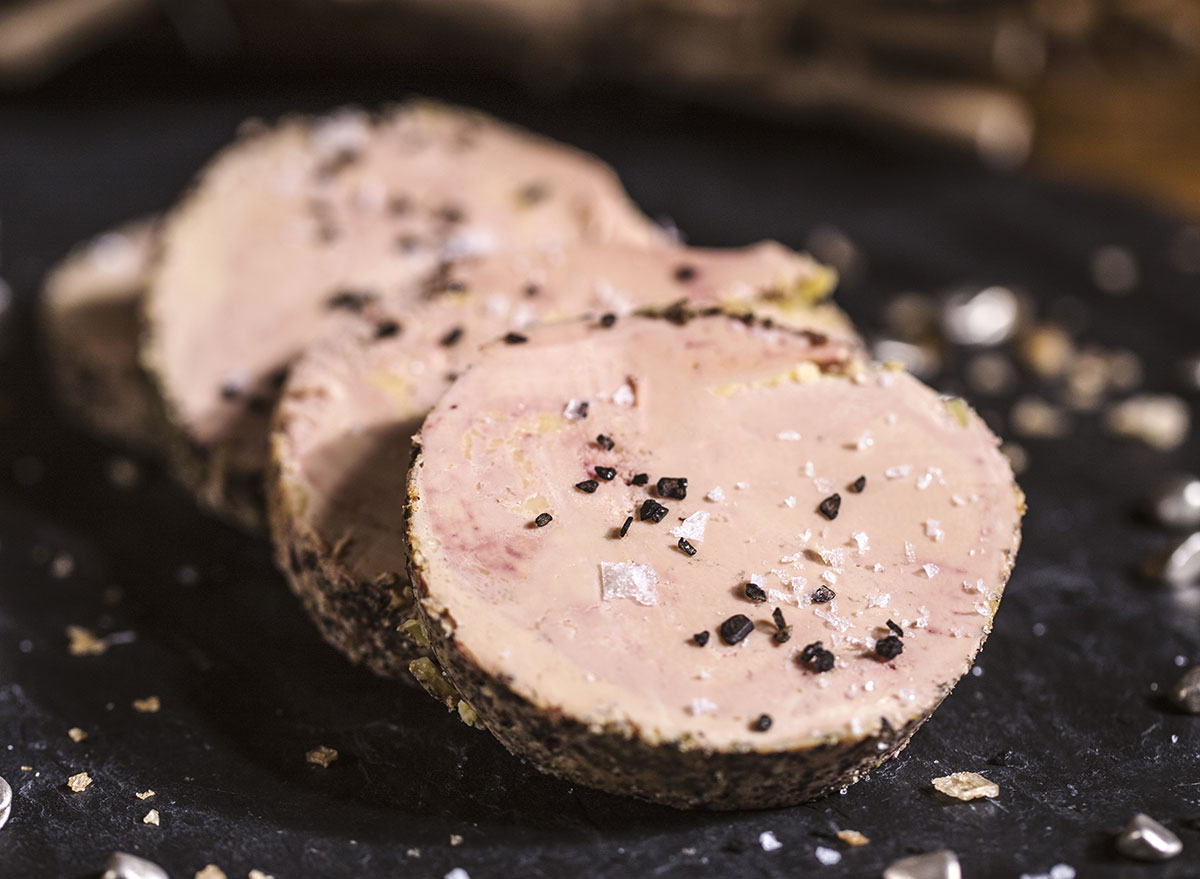
Foie gras may be a celebrated delicacy of French cuisine, but, the way it’s made is unethical, which is why the City Council in Chicago placed a ban on the production and sale of the dish from 2006-2008. More recently, the state of California officially banned the sale of the delicacy after former attempts had been challenged in previous years. Foie gras is the fatty liver that comes from either ducks or geese. The liver is fattened by force-feeding the animal with grain and fat until the liver swells. As one could imagine, this is so uncomfortable for the birds that they begin to tear out their feathers or even injure one another out of distress. A nationwide ban has yet to be enforced. However, it may be on the horizon with California’s successful ban this year.
Chilean Sea Bass
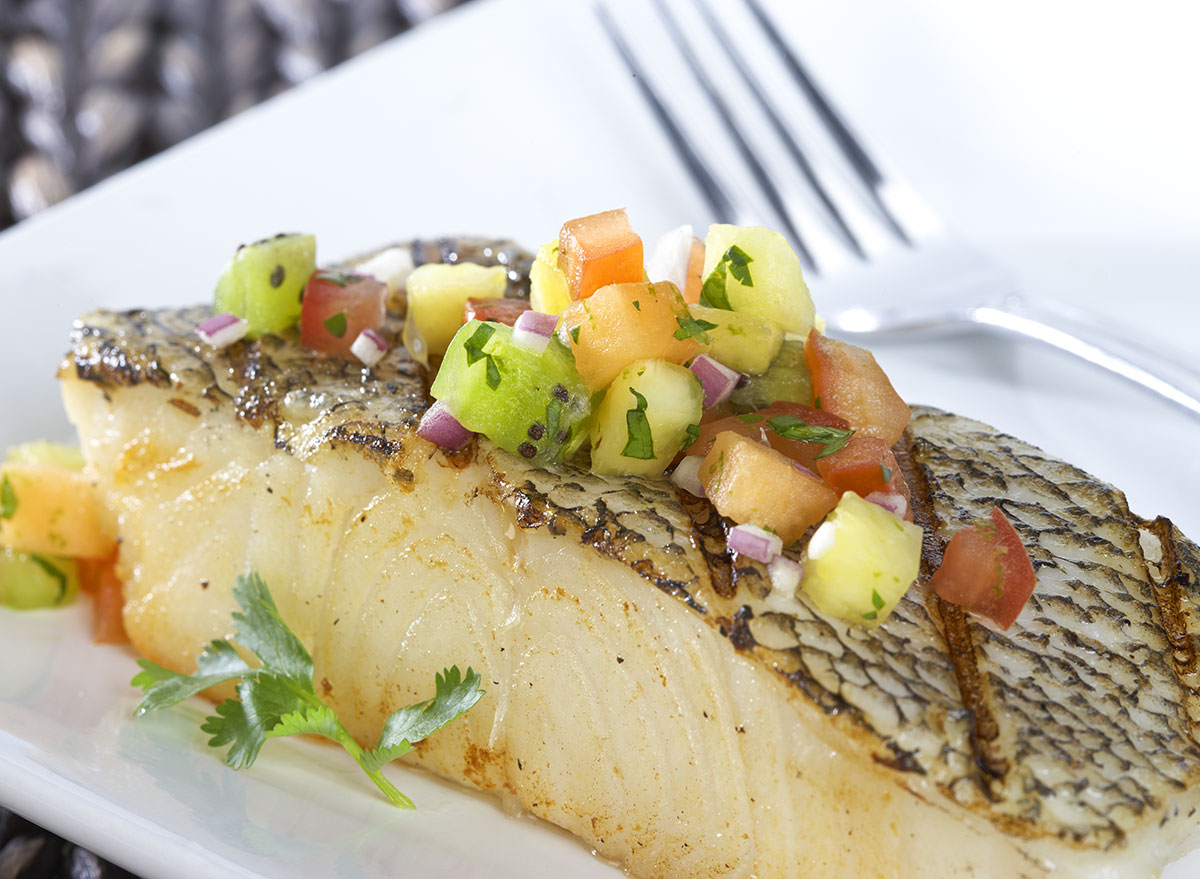
As of now, the U.S. only allows certified Chilean sea bass fishing boats to harvest and sell the fish. In addition, the FDA regulates the number of fish each boat is allowed to catch. It’s illegal to fish for Chilean sea bass without certification in the U.S. because it’s overfished and as a result, the species is on the decline.
Sea Turtles
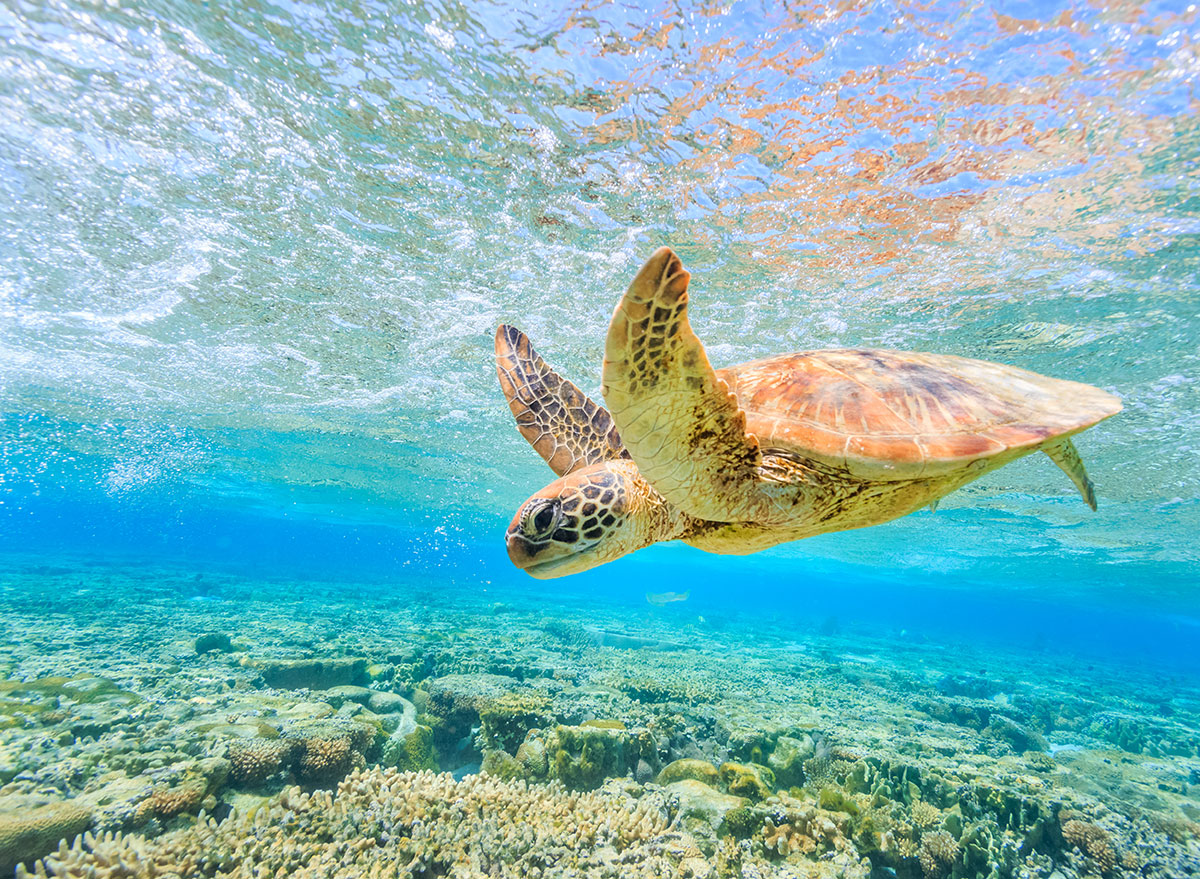
Sea turtles are caught and killed for their meat. In 2007, the U.S. Fish & Wildlife Service reported that conservationists estimated that 35,000 sea turtles are consumed annually in Calfornia alone. Now, according to Sea Turtle Conservancy, “Sea turtles are given legal protection in the United States and its waters under the Endangered Species Act, which lists the hawksbill, leatherback, Kemp’s ridley, and green turtle as endangered; the loggerhead is listed as threatened.”



